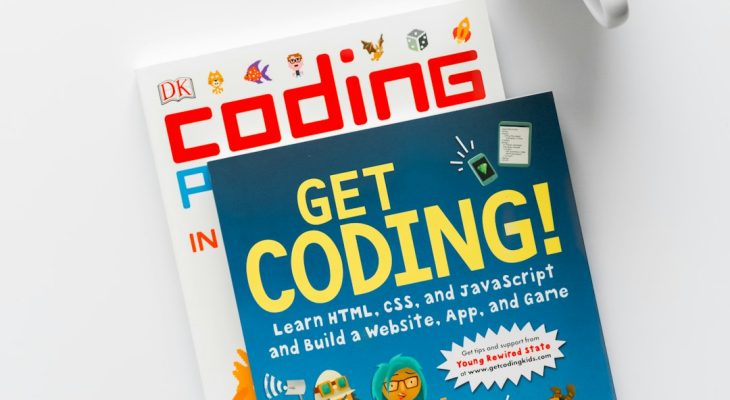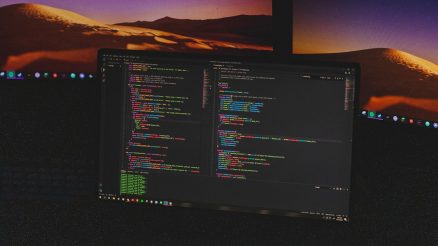Artificial Intelligence (AI) is rapidly transforming industries, and one of the most profound changes is taking place in the world of software development. Coding, once a domain purely driven by human logic and persistence, is now seeing a significant shift under the influence of AI. Over the next few years, developers, businesses, and educational institutions will experience how AI reshapes the coding landscape in ways both subtle and revolutionary.
AI-powered tools have already started assisting developers by automating repetitive tasks, detecting bugs, and offering real-time code suggestions. These intelligent systems not only reduce time-consuming work but also elevate code quality, ensuring cleaner, more efficient software. The influence of AI in this space is not just enhancing productivity but also democratizing programming by lowering the entry barrier for beginners.
[ai-img]ai coding assistant code suggestion programming[/ai-img]
One of the most compelling aspects of AI’s impact on coding is through natural language processing (NLP). Developers can now describe functionality in plain English, and AI systems like GitHub Copilot or OpenAI’s Codex can generate the matching code. This opens up opportunities for non-traditional coders, such as business analysts and designers, to contribute more directly to the codebase without extensive programming knowledge.
Key AI capabilities influencing the future of coding include:
- Code Generation: AI can produce boilerplate code, suggest functions, or even complete entire modules from short prompts.
- Error Detection: Debugging tools powered by AI can detect semantic and syntactical issues faster and more accurately than traditional methods.
- Code Translation: AI makes it easier to translate code from one language to another, streamlining cross-platform or cross-language development.
- Learning and Training: New developers benefit from personalized learning paths created by AI tutors that adapt to individual strengths and weaknesses.
Another exciting frontier introduced by AI is automated testing. Instead of manually writing time-intensive test cases, developers can rely on AI to generate and run test scenarios based on the codebase’s user flows and logic. This drastically reduces development cycles and enhances the reliability of software deployments.
Moreover, as software development shifts increasingly towards supporting DevOps and agile cycles, the integration of AI into continuous integration and continuous deployment pipelines (CI/CD) is becoming more commonplace. AI optimizes these pipelines by predicting build outcomes, prioritizing test cases, and even recommending infrastructure changes.
[ai-img]pipeline integration devops automation[/ai-img]
From a career standpoint, developers must adapt. As AI takes over more basic coding tasks, the role of the developer will evolve towards supervising AI outputs, focusing on system architecture, user experience, and strategic planning. The ability to work alongside AI tools and to understand their limitations will become an essential part of the modern developer skill set.
In education, coding curriculums are beginning to incorporate AI literacy as a core component. As tools that leverage models like GPT and BERT become part of a developer’s daily toolkit, it’s essential to teach students not just how to code, but how to collaborate with digital intelligence effectively and ethically.
Despite the rapid development, AI is not poised to replace human developers entirely. Coding often involves creative and context-aware decisions that require empathy, strategic foresight, and collaboration—areas where AI still lags significantly behind. Instead, AI will act as a powerful ally, enhancing creativity and speeding up workflows.
Looking ahead, the synergy between human creativity and AI efficiency promises a future where coding becomes more accessible, efficient, and innovative than ever before.
Frequently Asked Questions (FAQs)
- Q: Will AI replace programmers in the future?
A: No, AI is more likely to assist programmers by automating repetitive tasks and enhancing productivity. Human insight and creativity are still essential parts of development. - Q: What are some popular AI tools used in coding today?
A: Tools such as GitHub Copilot, OpenAI Codex, Tabnine, and Kite are widely used for AI-assisted code completion and generation. - Q: Can beginners learn to code with the help of AI?
A: Yes, AI tools simplify learning by offering real-time assistance, explanations, and guided coding exercises, making it easier for newcomers to grasp programming concepts. - Q: How is AI used in software testing?
A: AI automates the creation and execution of test cases, identifies potential issues faster, and improves test coverage, leading to more reliable software. - Q: What skills will be important for developers in an AI-driven future?
A: Skills in AI integration, system design, ethical considerations of AI, and the ability to supervise AI-generated content will become increasingly important.




![How to fix Commvault Error Code: [68:74] How to fix Commvault Error Code: [68:74]](https://magicvibes.co/wp-content/uploads/2025/02/man-in-black-and-white-checkered-dress-shirt-drinking-from-brown-and-white-ceramic-mug-mobile-screen-uber-eats-app-error-message-438x246.jpg)
